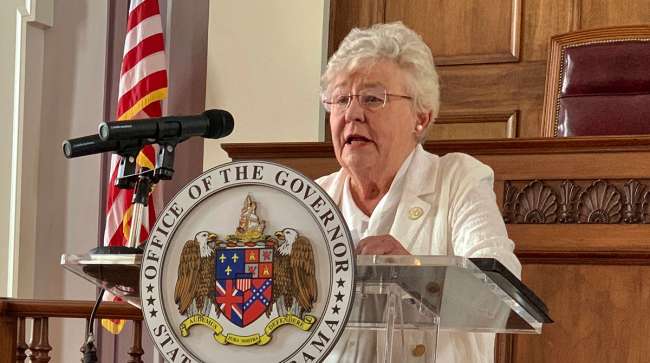Staff Reporter
Alabama Awards $1.5 Million for Infrastructure Projects

[Stay on top of transportation news: Get TTNews in your inbox.]
Leading Alabama officials have announced $1.5 million in funding will be awarded to cities and counties for local road and bridge projects.
The funding was provided through the Annual Grant Program, which was created as part of the Rebuild Alabama Act and is administered by the Alabama Department of Transportation. The program sets aside $10 million a year for local road and bridge projects.
This latest round of funding was evenly distributed among six government agencies that will provide a total of $705,941 in matching funds, even though matching funds are not required to participate in the program.
“Not only will we see these improvements as we drive on our roads, but we will see a ripple effect in areas like public safety and economic development,” Gov. Kay Ivey said in the announcement. “Investing in Alabama’s infrastructure is truly an investment in Alabama’s future.”
In partnership with ALDOT, I’m pleased to announce $1.5 million of #RebuildAL funding is being awarded to cities & counties across Alabama to support six more local road & bridge projects for the year. #alpolitics https://t.co/rsYb72Z799 — Governor Kay Ivey (@GovernorKayIvey) September 9, 2020
One award, for $250,000, will support widening and resurfacing work on several roads in the town of Elberta, which is located between Mobile and Pensacola, Fla. Another $250,000 grant will help repair a bridge that crosses over state Route 150 in Bessemer, a suburb of Birmingham.
Limestone County, located in the north-central portion of the state, was awarded $250,000 for a bridge replacement. The city of Vincent, which is 32 miles east of Birmingham, received the same amount to resurface 17 sites.
Alabama officials anticipate the projects will be under contract by the end of the calendar year, after the bidding process.
The Rebuild Alabama Act, signed in March 2019, required ALDOT to establish the Annual Grant Program. The legislation included a fuel tax increase, which is indexed to keep up with the rising cost of rebuilding roads. Effective Sept. 1, 2019, the gasoline and diesel tax rates went up 6 cents per gallon. The tax rate will go up 2 cents Oct. 1, 2020, and another 2 cents Oct. 1, 2021.
Previously, the tax rate in Alabama was 25 cents per gallon for diesel and 24 cents per gallon for gasoline.
“When I signed the Rebuild Alabama Act into law, I assured the people of Alabama that all areas of our state would see a benefit, and we are delivering on that promise,” Ivey said. “We are well on our way to rebuilding Alabama’s roads and bridges, and this $1.5 million is a significant step of the process.”
These recent projects were preceded by 37 other projects that received funding earlier this year. According to the governor’s office, the total amount of state funds distributed through the Annual Grant Program this year totals $10.2 million, which slightly exceeds the figure that is legislatively required to be set aside.

What are fleets doing to help attract the best possible diesel technicians to join the changing workforce environment? Host Michael Freeze speaks with Ken Boyer, dean of the Auto/Diesel Institute at Baker College, and Ralph Romero, vice president of talent management at U.S. Xpress. Hear a snippet, above, and get the full program by going to RoadSigns.TTNews.com.
Through this program, some $7 million was awarded to cities and counties in January, and $1.7 million was awarded in June. The January awards supported 31 projects statewide, while the June cycle represented six.
Alabama is one of several states that has enacted fuel tax increases over the past couple of years. In Ohio, legislators approved a 10.5-cent increase to the fuel tax rate. Under Illinois Gov. Jay “J.B.” Pritzker’s Rebuild Illinois plan, the state’s fuel tax rate increased to 45.5 cents per gallon for diesel and 38 cents per gallon for gasoline.
More recently, the New Jersey Department of the Treasury announced a tax increase of 9.3 cents per gallon Aug. 28. The tax hike is meant to offset declines in fuel consumption, which have been exacerbated by the coronavirus pandemic.
Want more news? Listen to today's daily briefing:
Subscribe: Apple Podcasts | Spotify | Amazon Alexa | Google Assistant | More




